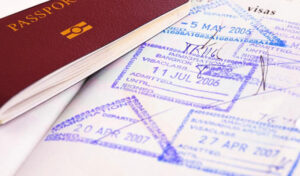Buying Property in Thailand can be challenging for foreigners. It is important to understand the legal complexities before purchasing.
A title search is crucial to determine the seller has a clear and legal ownership of the land or condo. This process also checks for liens, mortgages and verifies zoning, environmental and planning codes.
Buying a Condominium
Buying property in Thailand is not an easy task, especially for foreigners. It is important for buyers to understand that this process requires more research and diligence than usual as there are different laws, procedures, and cultures to consider. The best way to start your search is by finding a real estate agent that specializes in this type of property. This will ensure that you have a knowledgeable guide along the way.
Another helpful resource is word of mouth. Ask your friends, family, and acquaintances for recommendations. They will be able to provide insight into the different areas, prices, and developers in Thailand. They can also advise you on the most popular condos and give you an idea of what to expect from a lifestyle in each location.
When looking to purchase a condominium, it is important to review the rules and regulations carefully. These documents may seem tedious to read, but they will play a significant role in your buying decision. Additionally, buyers should make sure to get a copy of the Sale-Purchase Agreement to review the terms of the transaction.
Finally, buyers should ensure that the property is registered under their name with the Land Department before making final payment. In order to register, a foreign buyer must present a letter of confirmation for the transfer and the amount that has been paid in local currency.
Buying Land
It is not possible for foreigners to buy land in Thailand. However, it is possible to purchase houses constructed on the land through leases or usufructs combined with sale and purchase agreements. This structure offers a degree of indirect ownership, but the restrictions are severe. Foreigners who choose this option must acquire the real shares of a company (not just the company itself) and invest in the business in accordance with the rules set by the ministry of interior. In addition, they must invest a significant amount of money to prove that they are financially capable of holding the property.
Purchasing land through companies also requires the payment of various taxes and fees, including transfer fees, specific business tax, stamp duty, and withholding tax. It is highly recommended that the buyer hire a lawyer specializing in real estate transactions to avoid any potential complications or legal risks.
Many foreigners who wish to own a house in Thailand are able to do so through long-term land on-lease constructions with terms of up to 30 years. This method can be risky, so it is important to work with a reputable developer and a knowledgeable lawyer. In addition, it is important to do your due diligence and perform a thorough title search before signing any contracts. The seller must provide the official records of the land department in order to transfer the ownership to the buyer.
Buying a Villa
While there are some restrictions on foreign ownership of land, the purchase process for a villa in Thailand can be relatively straightforward. Working with a qualified legal professional and conducting thorough due diligence is essential to navigate these requirements. This includes investigating any land encroachments, squatter issues, and coastal erosion/flooding risks.
It is also a good idea to explore the different regions in which you may be considering purchasing a property. Taking the time to visit and assess properties will help you determine which location best meets your long-term goals and lifestyle preferences.
After completing your due diligence, you’ll be ready to make an offer on the property of your choice. Once an agreement is reached, the buyer and seller will sign a transfer deed at the Land Department. In addition to the purchase price, the buyer will be responsible for paying various taxes and fees. These fees are based on the property’s appraised value or the actual purchase price.
If you’re planning to finance your purchase, be sure to discuss the availability of mortgages with a reputable lender in Thailand. This will provide you with the flexibility to explore a wide range of mortgage options. You’ll also need to consider other costs associated with owning a property in Thailand, such as maintenance fees and utilities.
Buying a House
While it’s technically possible for foreigners to buy land in Thailand, it’s a complicated process with several barriers. One option is to set up a company with mixed Thai and foreign ownership where the foreign shareholding is 49% or less (this method requires professional legal help). Another option is for foreigners to invest at least THB40 million in a Board of Investment approved project. However, in both cases, it’s important to understand that even if you purchase property through an agent, there are still significant fees associated with the purchase.
It’s also recommended to appoint an attorney early on to perform a full title search and due diligence. Realtors can generally point you to an appropriate firm. Additionally, a professional surveyor can conduct an inspection to assess a property’s condition and uncover any potential problems. A good surveyor will be registered with a body like the Royal Institution of Chartered Surveyors.
Finally, once you’ve found the property you want to buy, negotiate the purchase price with the seller. Remember to build a relationship with the person at the other end of the table by greeting them with the traditional “wai” gesture and using polite and respectful language. It’s also a good idea to use an escrow account to hold funds until all transaction conditions are met. Lastly, ensure you have a specialist Thai property lawyer review the contract before you sign.










